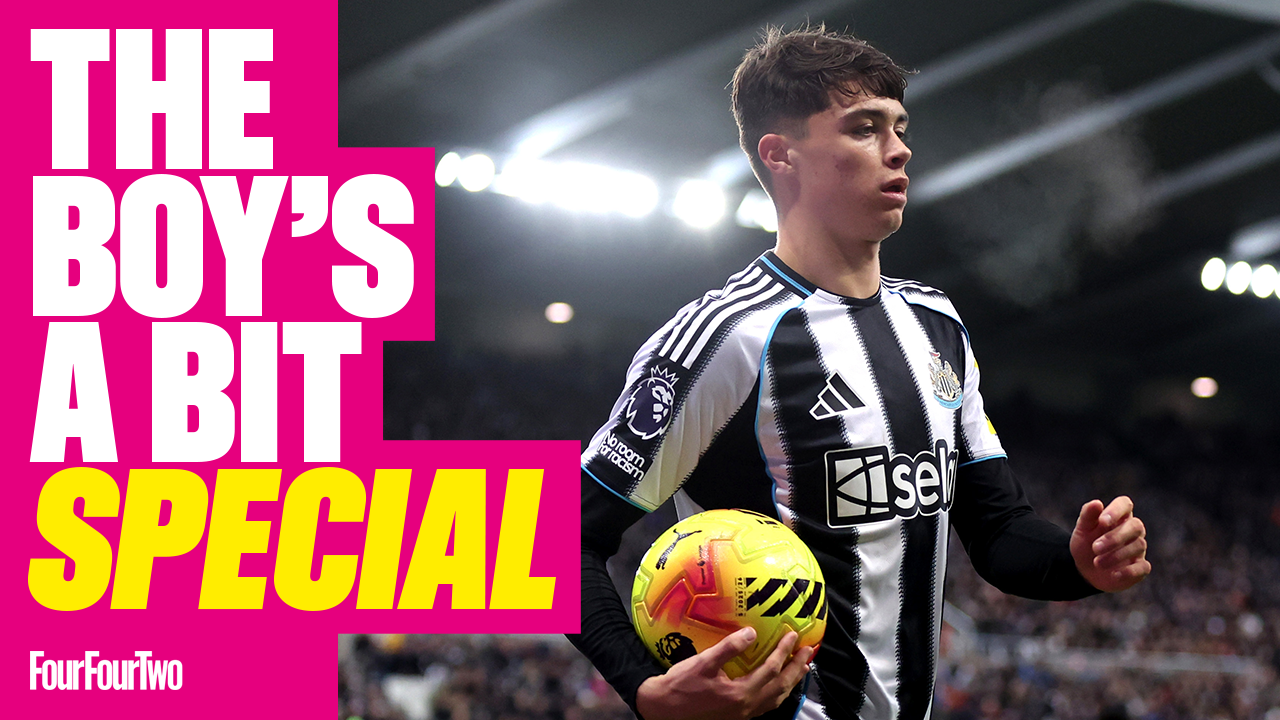Where are they now? Arsene Wenger's first Arsenal team, October 1996
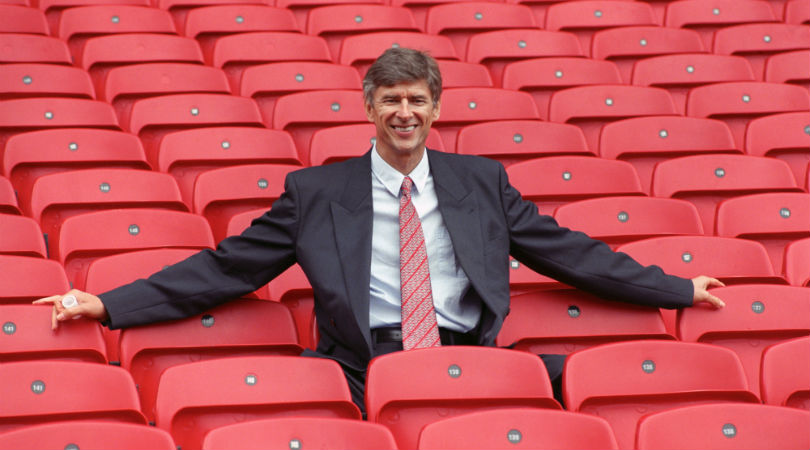
Wenger's first Arsenal team
It’s more than two decades since bespectacled Frenchman Arsene Wenger arrived in north London to become the first manager of Arsenal born outside the British Isles.
His maiden match in charge – against Blackburn Rovers in the Premier League – ended in a 2-0 victory, and Wenger went on to oversee one of the greatest periods in the club's history over the next decade. But what became of those who featured in his first ever game as Arsenal boss?
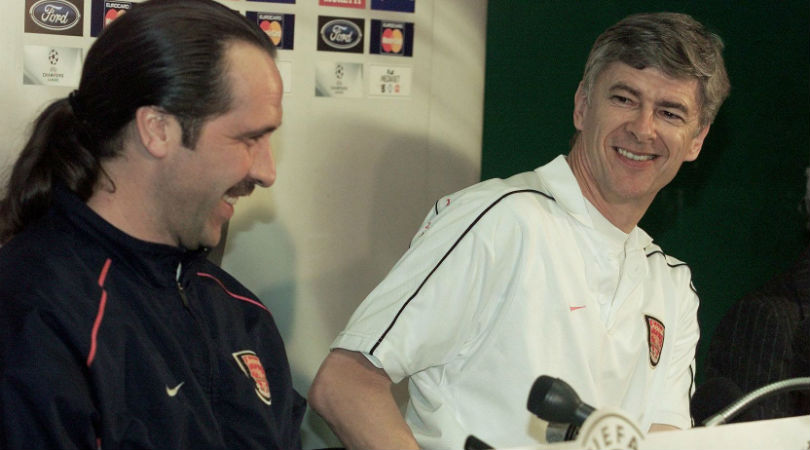
David Seaman
Seaman had already been Arsenal for six years, first joining the club from fellow Londoners QPR in 1990. He was a key player under George Graham in the earlier part of the decade, and was retained by Wenger as the Gunners' No.1 after the Frenchman took charge.
The England international missed large chunks of that first season with injury, but he went on to play more than 400 games for Arsenal. Since retiring at the age of 40 in 2004, Seaman has won Dancing on Ice, captained a team on They Think It's All Over, and kept goal for England in six Soccer Aid matches.
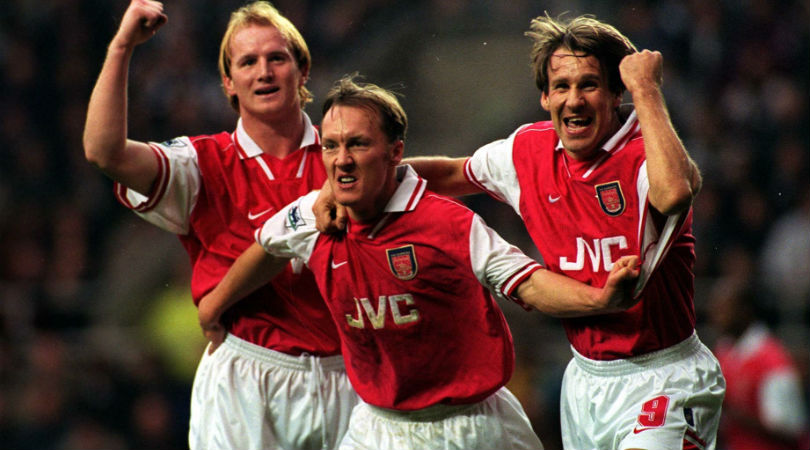
Lee Dixon
Dixon spent a total of 14 years at Arsenal and was a vital part of the miserly defence forged by former boss George Graham. Dixon started Wenger’s first game at right-back, having already won two First Division titles, an FA Cup and a Cup Winners’ Cup with the Gunners following his move from Stoke in 1988.
Dixon remained first choice until he retired, aged 38, at the end of the Double-winning season of 2001-02. He now spends much of his time working as a pundit on TV and radio, while he also owns a restaurant in Bray.
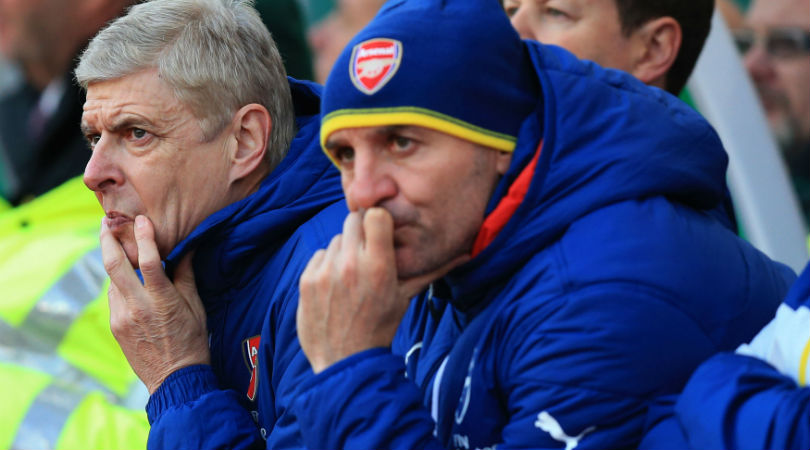
Steve Bould
Bould joined Arsenal from Stoke in 1988 and has been involved with the club ever since, save for a season spent at Sunderland at the end of his playing career. The no-nonsense centre-back kept his place in the starting line-up in Wenger's first season, with the incoming boss regularly deploying a five-man backline early on in his tenure.
Bould played a key role in Arsenal’s Double-winning season of 1997-98 before joining Sunderland the following summer. He currently works as Wenger's assistant boss at the Emirates Stadium, although his future beyond the current campaign is unclear.
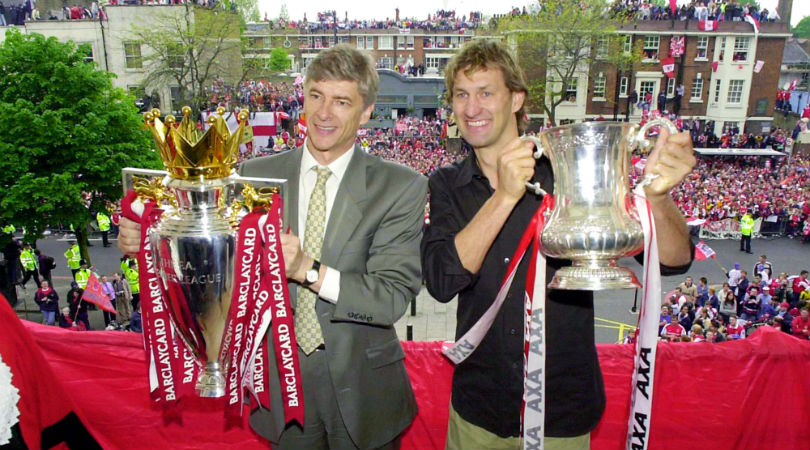
Tony Adams
Wenger has been renowned for bringing through youngsters in his 22 years at Arsenal, but his paternal approach to more mature players has often been overlooked. Adams had admitted to his battle with alcoholism shortly before Wenger took the reins at Highbury, with the centre-back going on to benefit from the changes to diet and preparation the Frenchman introduced.
A one-club man, Adams captained the Gunners to two league and cup doubles, before retiring at the end of the 2001-02 campaign. He's since managed Wycombe, Portsmouth, Gabala and Granada, as well as setting up the Sporting Chance Clinic to help sportspeople struggling with addiction.
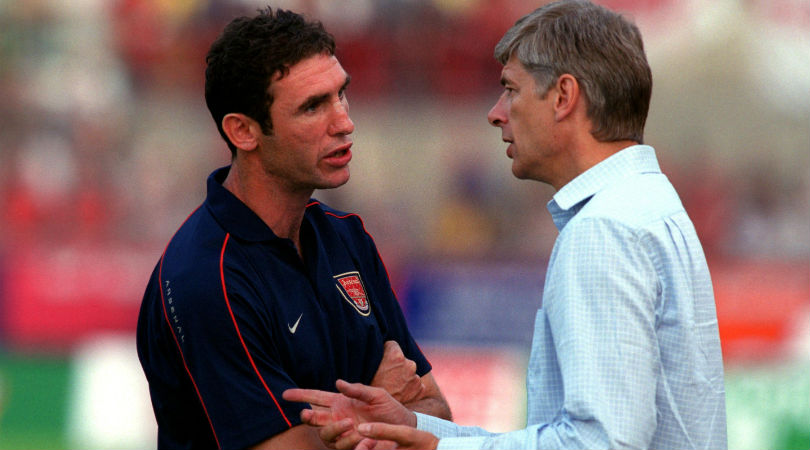
Martin Keown
Oxford-born Keown spent six years at Arsenal as a youngster but went on to play for Aston Villa and Everton before re-joining the Gunners in 1993. Keown, Tony Adams, Steve Bould and Andy Linighan formed a formidable centre-back cadre at Highbury for a large part of the 1990s, with the former remaining at the club until 2004.
These days the former defender is best known for his punditry work with the BBC and BT Sport. He's also dabbled in coaching since hanging up his boots, briefly working with Arsenal before taking up a part-time role with the Oxford University team.
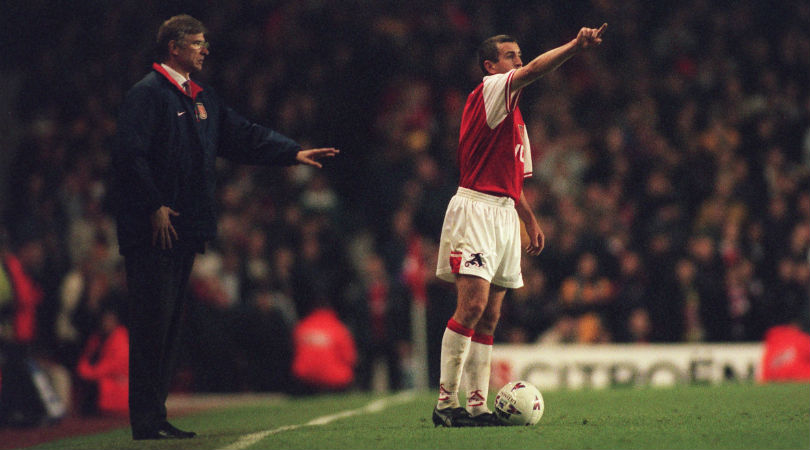
Nigel Winterburn
Nigel Winterburn was an integral member of George Graham’s frugal back four and remained an important part of Wenger’s defence for the first few seasons of the former Monaco boss’s tenure. He ensured the Gunners conceded just 33 goals en route to the Premier League title in 1997-98, before finishing his career at West Ham between 2000 and 2003.
The former left-back has largely been out of the public eye since his retirement, although he did spend a short time as Blackburn's defensive coach under Paul Ince. He also does occasional punditry work on British TV.
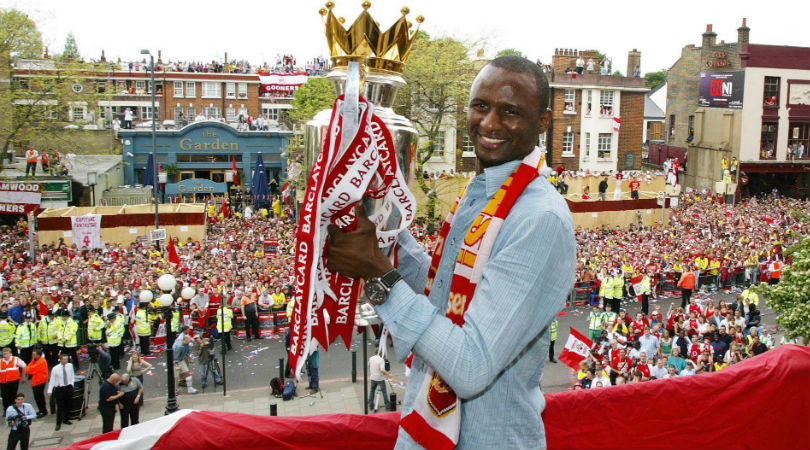
Patrick Vieira
Wenger’s influence at Arsenal could be seen before his official unveiling as manager in October 1996. His predecessor Bruce Rioch had been sacked in the summer and managerless Arsenal had signed two French players – Vieira and Remi Garde – on Wenger’s say-so.
The rangy midfielder went on to win three Premier League titles and three FA Cups at Highbury, before departing for Juventus in 2005. He later went on to represent Inter and Manchester City, and is currently manager of New York City in MLS.
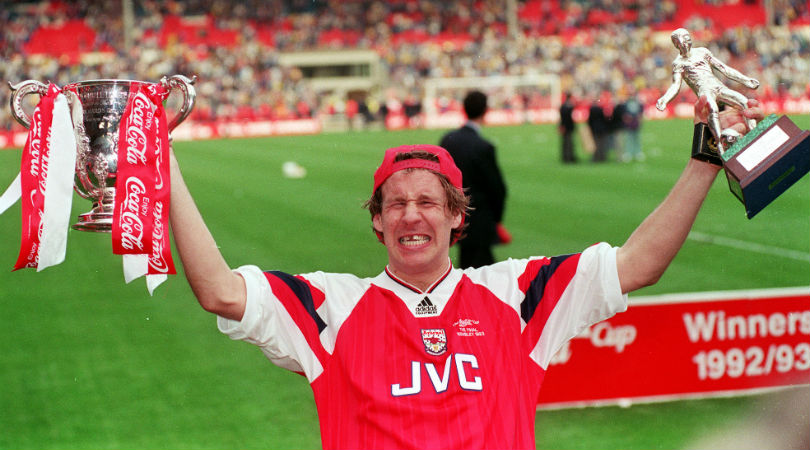
Paul Merson
Like captain Tony Adams, England international Merson had struggled with addiction issues before Wenger's arrival, spending three months in rehab for issues with alcohol, cocaine and gambling in late 1994.
The creative midfielder returned to the side under Bruce Rioch in February 1995, and went on to play regularly for Wenger in his first season at Highbury. He was sold to Middlesbrough at the end of that campaign, however, before embarking on spells with Aston Villa, Portsmouth and Walsall - including a player-manager stint with the latter. Merson currently works as a pundit for Sky Sports.
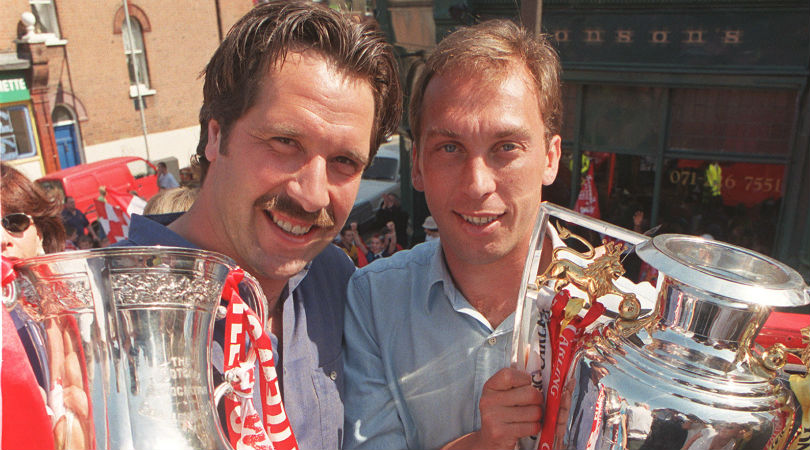
David Platt
England international Platt arrived at Highbury during the latter stages of his career, having previously played for Crewe, Aston Villa, Bari, Juventus and Sampdoria. Platt made 28 appearances under Wenger, but found his first-team opportunities limited after the signing of Emmanuel Petit in 1997.
Platt was appointed Nottingham Forest's player-manager in 2001 and hung up his boots permanently soon after. Coaching jobs with England Under-21s and Manchester City followed, before the ex-Gunner spent a brief time in charge of Indian outfit Pune City in 2015.
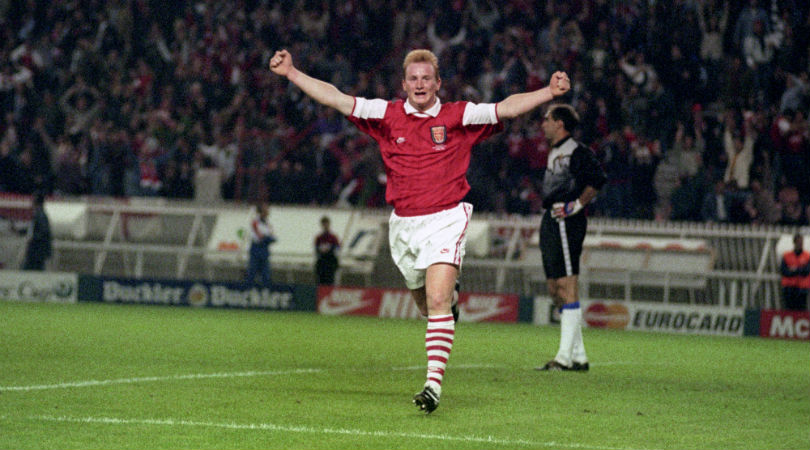
John Hartson
The Welsh striker was more traditional British than cutting edge Wenger in style, but it was he who set up the first goal of the Frenchman's tenure, nodding Nigel Winterburn's long ball into the path of Ian Wright for the opener against Blackburn.
Hartson found game time hard to come by thereafter, though, and was sold to West Ham for £3.2m in February 1997. The centre-forward later represented Wimbledon, Coventry, Celtic, West Brom and Norwich, but soon after retiring he was diagnosed with testicular cancer that had spread to his brain and lungs. After winning his battle with the disease, he set up the John Hartson Foundation to raise awareness and support sufferers.
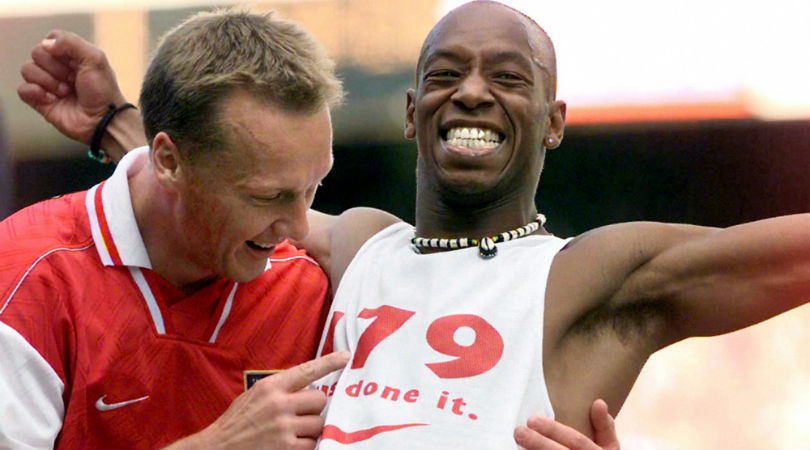
Ian Wright
Wright’s career at Highbury was coming to a conclusion as Wenger’s was just beginning, with the England striker already 33 when the Frenchman arrived in north London. He’d been Arsenal's top scorer ever season since arriving from Crystal Palace in 1991, but
departed after the Double-winning campaign of 1997-98.
After stints with West Ham, Nottingham Forest, Celtic and Burnley, the ex-England international called it a day in 2000. He briefly worked as a first-team coach at MK Dons, but Wright has spent most of his post-playing career working as a popular TV and radio pundit.
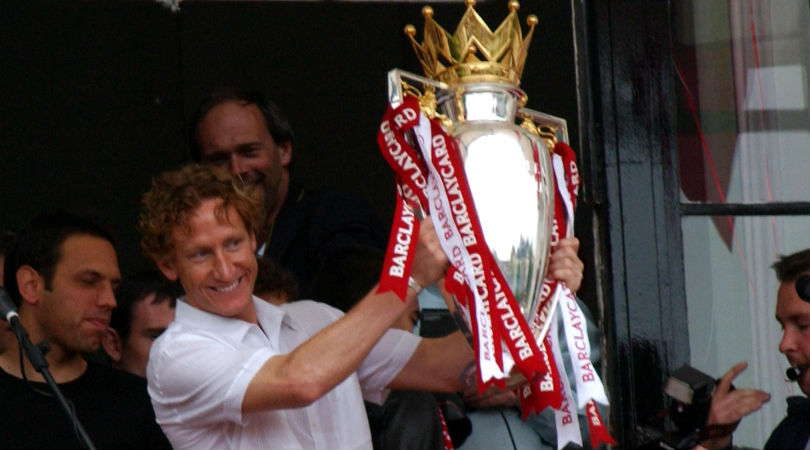
Ray Parlour (sub)
Wenger’s arrival at Arsenal transformed Parlour, who had previously struggled with a number of disciplinary problems and seemed to be on his way out of Highbury. Such was the midfielder's renaissance under the Frenchman that he went on to become an intrinsic part of the side for a number of years.
Parlour came on for Hartson in the last five minutes of this game, before becoming a regular starter in subsequent weeks. He starred in the Double-winning teams of 1998 and 2002, eventually leaving Arsenal for Middlesbrough in 2003. Following a brief stint at Hull, the ex-England international hung up his boots four years later; these days he spends his time working as a TV pundit and an ambassador for the Gunners.
 Join The Club
Join The Club










